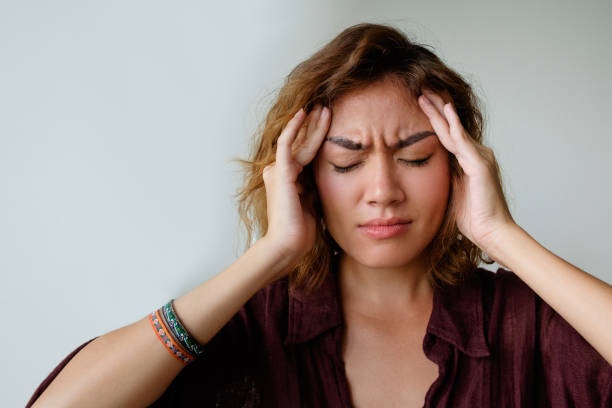Develop strategies that help you manage a migraine.The 36 million Americans who suffer from migraine headaches can tell you that a migraine headache is serious business. For many people, the best way to manage a migraine is a combination of prevention strategies and acute treatment.
1. Write it down.
Keeping a migraine diary and tracking what you’re doing prior to developing a migraine can help you determine what might be triggering or exacerbating your headaches. You’ll get a better sense of what foods or activities to avoid, if those are your triggers, or if high levels of stress at work or certain physical activities are preceding your migraines. You might also start to recognize symptoms that occur in the day or two before a migraine develops—this is called the prodrome period. This can help you plan out the best prevention strategies for avoiding a migraine, if possible. Your doctor may also suggest that you adopt some behavioral management tools to help you cope with triggers that are impossible to avoid.
2. Retreat!
You really can’t expect yourself to power through a migraine. When you notice the warning signs of an impending headache, give yourself permission to find a quiet, dark space where you can relax and avoid the stimulation of light and sound that can worsen the pain.
3. Care for yourself in the early stage.
Some people find that a cool compress placed on their head or neck can reduce the full impact of the migraine. Others like warmth, choosing a warm compress instead. You might also try sipping on a caffeinated beverage—but don’t overdo it, since too much caffeine can make you feel worse later.
4. Hydration helps.
It seems like almost everything can be improved by drinking more water, doesn’t it? Dehydration can contribute to a migraine. Conversely, staying hydrated can help you recover from one, especially if the pain has caused you to vomit.
5. Master your medications.
Your doctor may choose to try you on a prescription drug to stave off future migraines. The most commonly used prophylactics fall into four categories: antidepressants, antihypertensive medications, antiepileptic drugs, and new medicines called CGRP blockers, which were specifically developed to prevent migraines. If your doctor prescribes one of these meds for you, take them as prescribed. Don’t give up if you don’t get immediate relief, as it may take several weeks for the medications to work.
6. Avoid your trigger foods.
If you’ve noticed that certain foods tend to trigger a migraine, plan to avoid them. Common trigger foods include fermented or pickled foods, foods containing the flavor enhancer MSG, red wine, aged cheeses, cured meats and other meats containing sodium nitrate, and sometimes citrus fruit and bananas.
7. Monitor your meds.
Non-steroidal anti-inflammatory drugs, or NSAIDs, can help reduce the pain of a mild migraine. But if you’re popping the OTC pain meds like candy or you’re taking too much of a prescription med, you could be unintentionally contributing to the problem. You may wind up with a rebound headache.
8. Fix what’s not working for you.
If your current medication isn’t effective enough, talk to your doctor about trying something else. Treatment options abound! Also, if any of your symptoms change, that’s another reason to put in a call, especially if you start experiencing a stiff neck, seizures, confusion, or double vision with your headache. Unexplained weakness or numbness with a headache could also be a sign of a more serious medical problem. Some women also find that their birth control pills make their migraines worse, so again, this is another issue to discuss with your doctor.
9. Benefit from exercise.
Getting some exercise on a regular basis may help your overall health, but it can also help reduce your stress levels, which may reduce the likelihood of any migraines caused by stress. If you’re worried that exercise will trigger a migraine, start slow and choose a low-impact activity. Don’t forget to drink plenty of water while you exercise to stay hydrated.
10. Consider complementary medicine.

Behavioral therapy and biofeedback have proven themselves to be helpful for migraine treatment, but what about other types of complementary and alternative medicine? The American Academy of Neurology and the American Headache Society note that an herb called butterbur can effectively prevent some migraines, and other research suggests that coenzyme A10 and riboflavin may provide some ammunition in warding off migraines. Talk to your doctor, however, before taking any herbs or supplements, since they could interact with any other medications you’re taking.
From: Jennifer Larson


